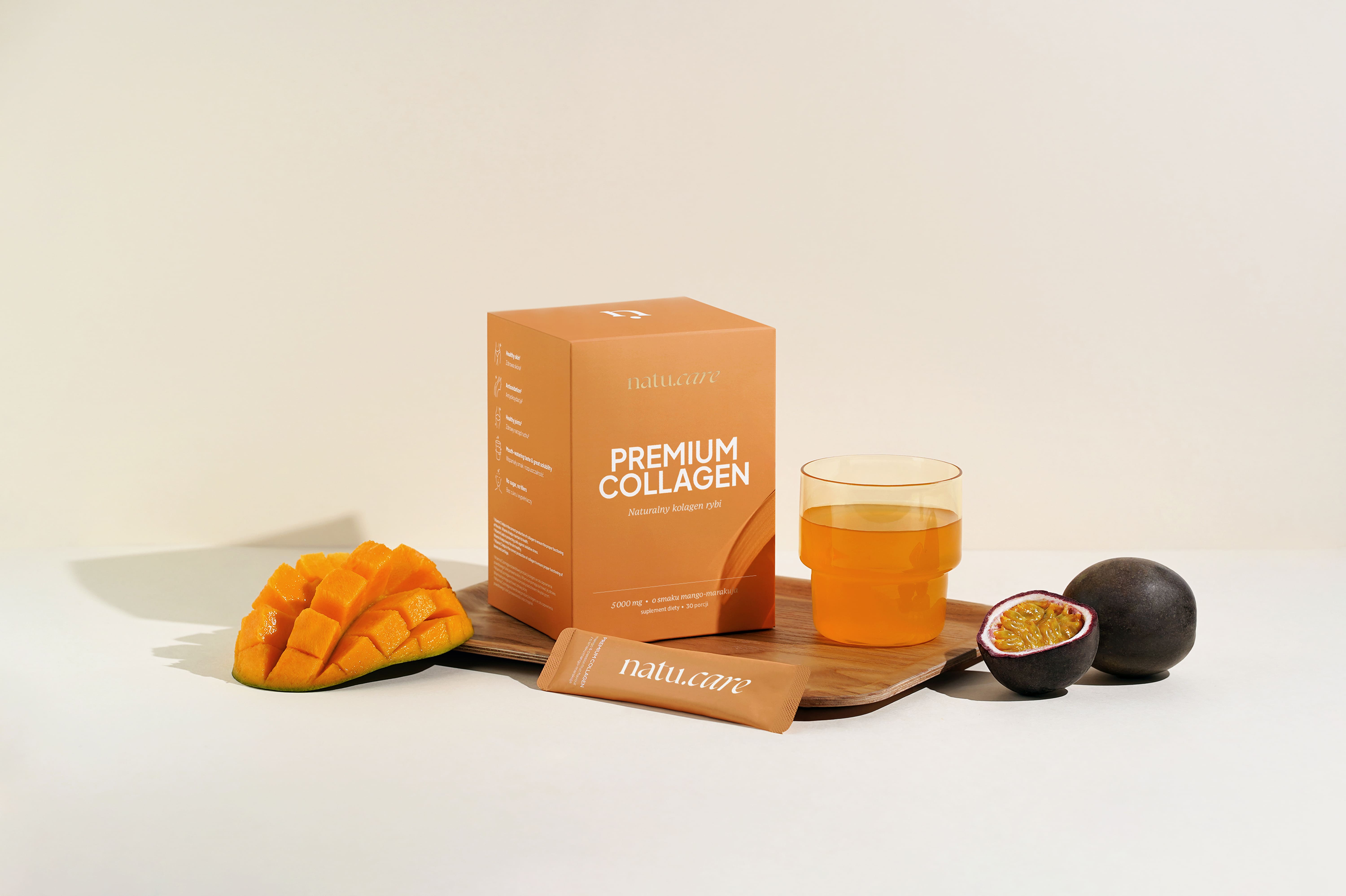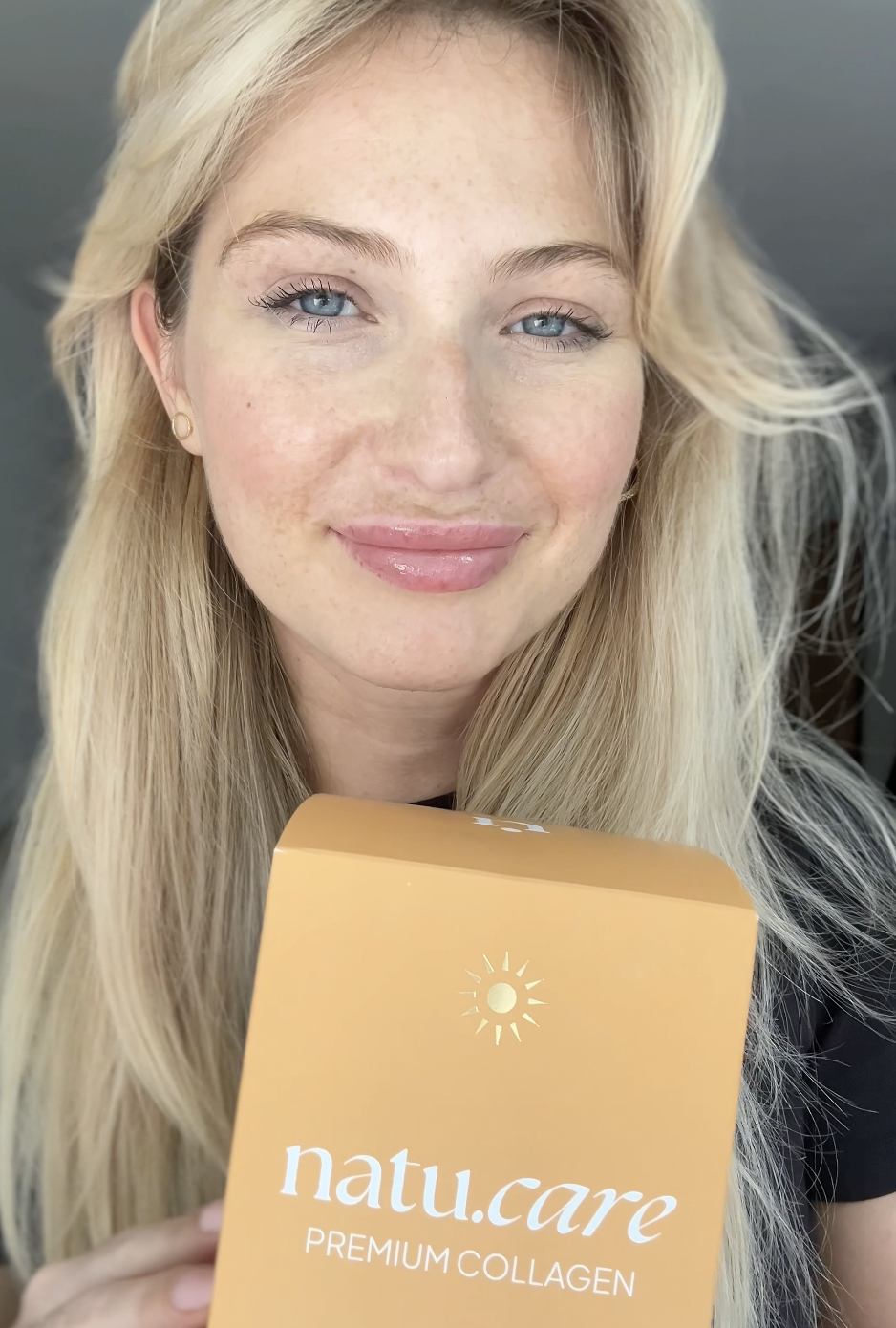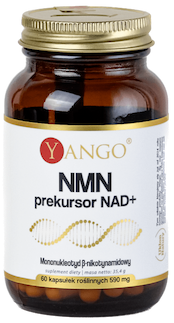What is NMN? Effects, effects, side effects [supplements].
Everything you want to know about NMN: properties, effects, safety and expert opinions.


Learn more about our editorial process
.

Learn more about our editorial process
.

Learn more about our editorial process
.

Learn more about our editorial process
.![What is NMN? Effects, effects, side effects [supplements].](https://cdn-resources.natu.care/uploads/1/science_background_with_molecule_atom_abstract_structure_science_medical_background_3d_illustration_1_3de62af77d.jpg)
Why you can trust us
Articles on Natu.Care are written based on scientific research, data from government websites and other reliable sources. The texts are written in cooperation with doctors, nutritionists and other health and beauty experts. Articles are reviewed before publication and during significant updates.
.Learn more about our editorial process
.Information about advertisements
Content on Natu.Care may contain links to products from the sale of which we may receive a commission. When creating content, we adhere to high editorial standards and take care to be objective about the products discussed. The presence of affiliate links is not dictated by our partners, and we select the products we review ourselves completely independently.
.Learn more about our terms and Conditions
.What if we stopped growing old? Eternal youth is a desire as old as humanity. Have we just discovered the holy grail of longevity?
Nicotinamide mononucleotide, available in dietary supplements under the much easier-to-remember name NMN, is supposed to be the cure for all the evils of the passing years. However, for the time being, studies confirming its efficacy in humans are also... scarce.
From this article you will learn:
- What the NMN is and how it works. .
- What you can expect when supplementing with NMN. .
- What scientific research says about NMN and what experts say.
- What is NMN?
- What daily dose of NMN to take. .
- Whether NMN supplementation has side effects. .

Sprawdź, za co pokochały go tysiące klientek Kolagen Premium 5000 mg, mango-marakuja
Natu.Care Kolagen Premium 5000 mg, mango-marakuja
Natu.Care Kolagen Premium dla zdrowia stawów, skóry, paznokci i włosów. Najlepsza przyswajalność. Optymalna dawka 5 000 lub 10 000 mg. Przebadany przez niezależne laboratorium.
Zobacz więcej
Wybrałam kolagen Natu.Care, ponieważ miał super opinie – a to było dla mnie bardzo ważne! Odkąd go stosuję, moja skóra znacznie się poprawiła i jest nawilżona, a na głowie pojawiły się nowe "baby hair".@Kasia S.
See also:
.
- NAC (N-acetylcysteine) .
- Alpha-lipoic acid
- Vitamin B3 (niacin)
- B vitamins
- Vitamin A .
- Vitamin C
- Vitamin D3
- Vitamin E
- Vitamin K
- Vitamin K2
- ADEK vitamins
What is NMN?
.
NMN (nicotinamide mononucleotide) is a naturally occurring chemical compound - a nucleotide - in the body. It is a product of the metabolism of vitamin B3 and a precursor of NAD+ (nicotinamide adenine dinucleotide). This means that after oral administration, NMN is eventually converted to NAD+. Thus, it affects the concentration of NAD+ in the bodyand.
Bacteria present in the gut have enzymes that convert NMN to nicotinic acid mononucleotide (NAMN) by deamidation, which is then involved in the synthesis of NAD+..
 .
.
Ilona Krzak Master of Pharmacy
Interesting fact
.In November 2022, the European Commission granted NMN 'novel food' status to and. It is given to all products that were not widely consumed before 15 May 1997. This status means that in order for a substance to be placed on the market in the European Union, it must be included in the EU list of novel foods.
Why is NAD+ important?
.
NAD+ is also a nucleotide found in the body. It is involved in cellular respiration and converting what you eat into metabolic energy. In addition, it stimulates enzymes that are responsible for repairing damage in DNA chainsand.
Furthermore, NAD+ is a chemical compound that is involved in many cellular processes in the body. For example, it is essential for the proper functioning of mitochondriaand.
Simply put, NAD+ slows down the body's ageing process, because it makes your cells work more efficiently and are repaired more effectively. However, the concentration of NAD+ in the body decreases with ageand.
Alcohol consumption is not inert to your body - this is common knowledge. However, it is worth mentioning that when large quantities are consumed at one time, NAD+ levels are reduced throughout the body. The result can be multi-organ injury and accelerated ageing processes..
 .
.
Ilona Krzak Master of Pharmacy
.
How to increase the concentration of NAD+ in the body?
.
One way to increase the concentration of NAD+ in the body is to take its precursor, NMN. Nicotinamide mononucleotide has high bioavailability, meaning it is easily absorbed into the bodyand.
Product description
The dietary supplement Yango NMN (Nicotinamide Mononucleotide) is a high-quality product containing β-nicotinamide mononucleotide, a key chemical in energy production in the cellsór. It is a precursor of NAD+, an important coenzyme in metabolic processes, intracellularórk communication and DNA repair.
Supplementation with NMN may support normal energy metabolism and help prevent ageing. The filler-free product, encapsulated in a vegan capsule, guarantees the highest quality and safety.
Supplementation of NMN can help to support energy metabolism.
Pros and cons
The dietary supplement Yango NMN (Nicotinamide Mononucleotide) is a high-quality product containing β-nicotinamide mononucleotide, a key chemical in energy production in the cellsór. It is a precursor of NAD+, an important coenzyme in metabolic processes, intracellularórk communication and DNA repair.
Supplementation with NMN may support normal energy metabolism and help prevent ageing. The filler-free product, encapsulated in a vegan capsule, guarantees the highest quality and safety.
Supplementation of NMN can help to support energy metabolism.
Additional information
The dietary supplement Yango NMN (Nicotinamide Mononucleotide) is a high-quality product containing β-nicotinamide mononucleotide, a key chemical in energy production in the cellsór. It is a precursor of NAD+, an important coenzyme in metabolic processes, intracellularórk communication and DNA repair.
Supplementation with NMN may support normal energy metabolism and help prevent ageing. The filler-free product, encapsulated in a vegan capsule, guarantees the highest quality and safety.
Supplementation of NMN can help to support energy metabolism.
The dietary supplement Yango NMN (Nicotinamide Mononucleotide) is a high-quality product containing β-nicotinamide mononucleotide, a key chemical in energy production in the cellsór. It is a precursor of NAD+, an important coenzyme in metabolic processes, intracellularórk communication and DNA repair.
Supplementation with NMN may support normal energy metabolism and help prevent ageing. The filler-free product, encapsulated in a vegan capsule, guarantees the highest quality and safety.
Supplementation of NMN can help to support energy metabolism.
.
NAD+ does not have the ability to penetrate cells. Therefore, in case of its deficiency and low supply of precursors, it should be administered in the form of dietary supplements..
 .
.
Ilona Krzak Master of Pharmacy
Nicotinamide mononucleotide can also be synthesised in the body. This happens when enzymes using NAD+ produce nicotinamide, which is then converted to NMN as a spare substance in the rescue pathway, adds pharmacist.
See also:
.
- Hair supplements .
- Collagen supplements
- Best multivitamins
- Best vitamins for pregnant women
- Best vitamins for men
Properties of NMN
.
NMN is credited with many health-promoting properties. As a precursor to NAD+, it is thought to have anti-ageing effects, increase performance and regulate metabolism. In addition, some scientists see it as having therapeutic potential for lifestyle and age-related diseases such as diabetes, Alzheimer's disease and cardiovascular conditionsand.
Unfortunately, there are currently few human studies that can unequivocally confirm the beneficial properties of NMN. Most of the scientific work on this compound is preclinical research, conducted on mice, pigs and even insects .
Based on this, it is difficult to say how NMN actually affects humans. Most of the study results seem optimistic, but there is also no shortage of studies that suggest that taking NMN had no significant effect on the human bodyand.
How does NMN work?
.
NMN is credited with preventing cellular ageing, protecting chromosomes or regenerating DNA damage. The compound can also support the proper functioning of mitochondria, which are the energy centre of cells. NMN supplementation may also support the maintenance of normal insulin balance and regulate metabolismand.
Aging at the cellular level can be defined as a decrease in energy production in cells. And it is these cells that make up our entire body, including our internal organs. Consequently, when cells stop working efficiently, the functioning of the entire body deteriorates.
Aging at the cellular level can be defined as a decline in energy production.
It has been shown that inflammation and oxidative stress caused by ageing reduce NAD+ biosynthesis.
 .
.
Ilona Krzak Master of Pharmacy
.
Maintaining an adequate concentration of NAD+ is supposed to ensure that cells produce energy more efficiently and function optimally. In practice, this means slowing down the ageing of the body. NMN supplementation is supposed to help ensure proper NAD+ levelsand.
NMN and NAD+ deficiency
.
As research shows, NAD+ deficiency is closely associated with various pathophysiologies, including type 2 diabetes, obesity, heart failure, Alzheimer's disease and cerebral ischaemia. As we age, NAD+ levels decline in many organs, contributing to homeostasis disequilibrium and disease development..
 .
.
Ilona Krzak Master of Pharmacy
Magister of Pharmacy Ilona Krzak explains further: depletion of NAD+ can occur in response to excessive DNA damage from free radical attack or ultraviolet radiation. Thus, people who spend long periods of time in the sun without UV filters should increase their intake of nicotinamide mononucleotide.
NMN deficiency may also be indirectly caused by an excess supply of lecithin, which inhibits the formation of niacin.
NAD+ depletion was associated with complications and significant patient deterioration during coronavirus disease (Covid-19)..
 .
.
Ilona Krzak Master of Pharmacy
.
Effects of NMN supplementation
.
NMN, as a precursor to NAD+, can regulate metabolism and inhibit the body's ageing processes. Most studies confirm that NMN increases NAD+ levels in blood cells, which is important for energy production, metabolic regulation and overall health. It is also possible that NMN supplementation may help prevent heart disease or neurodegenerative conditionsand.
NMN and performance and fitness
.
Taking NMN may benefit respiratory capacity, as well as muscle strength and endurance.
A study conducted on 48 amateur runners showed that NMN supplementation for six weeks increased the aerobic capacity of those included in the experiment. However, it is worth noting that, along with taking NMN, the subjects exercised 5-6 times a weekand.
In contrast, a study conducted on a group of older, healthy men suggested that NMN supplementation improved gait speed and grip strength, and therefore muscle performance and strength. At the same time, the researchers did not observe an increase in muscle mass in the subjectsand.
This NMN seems great, huh? Possibly, but I'm tossing you another study. In 2019, researchers showed that aerobic and resistance training (without any additional supplementation) also stops the decline of NAD+ in skeletal muscleand. Ot, movement is health.
NMN and diabetes prevention
.
Maintaining adequate insulin sensitivity in the body's cells is key to preventing diseases such as type 2 diabetes and insulin resistance. It can also support normal metabolism.
A study conducted on people aged 40-65 years suggests a beneficial effect of NMN supplementation on cellular insulin sensitivityand. This effect is also supported by positive insulin sensitivity findings in postmenopausal pre-diabetic women .
NMN and cardiovascular disease
.
Researchers attribute NMN supplementation's potentially beneficial effect on the prevention of cardiovascular disease, as metabolic disorders are the cause of many of them.
However, a 12-week study, during which 36 middle-aged people supplemented with NMN, showed no changes in blood parameters, hormones or biochemical testsand.
The researchers also tested the effect of NMN on pulse waves, an indicator used to test arterial stiffness. Arterial stiffness is one of the risk factors for developing cardiovascular diseaseand.
Interestingly, in people with normal body mass index and blood glucose levels, taking NMN did not result in significant changes. However, in a group of people with an elevated body mass index and high blood glucose levels - i.e. those at risk of hypertension - NMN resulted in a lower pulse waveand.
.
Aging is accompanied by a decrease in cardiac NAD+ levels, resulting in pathological cardiac remodelling and dysfunction. NMN may be a factor maintaining NAD+ homeostasis and thereby mitigating the effects of ageing on cardiac function..
 .
.
Ilona Krzak Master of Pharmacy
Is this enough to consider NMN as a remedy for cardiovascular disease? Certainly not. Despite some promising animal studies and the human study cited above, further studies are needed, taking into account a larger group of subjects.
Other
.
There are still several unpleasant effects associated with the ageing process. These include, for example, problems getting pregnant. Preliminary animal studies suggest that NMN supplementation, and consequently increased NAD+ concentrations, may counteract the deterioration of female germ cells (oocytes)and.
Another problem that occurs with age is insomnia. Research is currently underway into the effect of taking NMNs on improving sleep physiology .
NMN has also been attributed to vasoprotection of the cerebral vasculature, which reduces the risk of strokes and alleviates symptoms of dementia-related diseases. Recent studies suggest that NAD+ precursors play a key role in maintaining the integrity of the intestinal barrier. NMN supplementation may provide protection against intestinal inflammation..
 .
.
Ilona Krzak Master of Pharmacy
NAD+ plays an important role in intestinal homeostasis, and supplementation with NMN, one of the precursors of NAD+, increases its biosynthesis in the gut. These precursors exhibit anti-inflammatory effects, which positively affects people with intestinal mucositis, explains pharmacist.
See also:
.
Dosing of NMN
.
One thing the research results seem to agree on is that NMN supplementation is safeand. So you can verify for yourself the claims made by scientists and see if taking NMN will benefit your wellbeing and health.
What daily dose of NMN would be appropriate? When studying the effects of NMN supplementation on the human body, participants were most often given doses ranging from 150 mg to as much as 900 mg of NMN. However, the most common daily portions of this ingredient are about 300-500 mgand.
In the 2023 study, participants were divided into three groups given 300 mg, 600 mg and 900 mg of nicotinamide mononucleotide daily, respectively. The group taking 600 mg per day of NMN showed better supplementation effects than the group consuming 300 mg, but the differences between the group taking 600 mg and 900 mg were no longer as significantand.
Taking this into account, taking a daily dose of NMN above 600 mg does not seem necessary.
.
NMN is a safe substance. At 500 mg per day - according to studies - a therapeutic effect can be achieved without any side effects..
 .
.
Julia SkrajdaDietitian
.Foods with NMN
.
Most nutrients such as vitamins and minerals are best supplemented with a healthy and balanced diet. But it won't be so easy with NMN because it's scarce in food. Well, because, can you manage to eat about 50 kg of avocado or broccoli to provide yourself 500 mg of NMN?
.
|
Product: . |
NMN quantity in mg/100 g product: . |
|
| . |
edamame beans . |
0.47-1.88 |
|
avocado |
0.36-1.60 |
|
|
broccoli |
0.25-1.12 |
|
|
cucumber (seeds and peel) . |
0.56-0.65 |
|
|
cabbage |
0.0-0.90 |
|
|
tomato |
0.26-0.30 |
|
|
Beef (raw) . |
0.06-0.42 |
|
|
shrimp |
0.22 |
Does NMN have side effects?
.
In the majority of studies, no side effects of taking NMN were observed, so its supplementation is considered safe. The exception is a 2021 scientific paper in which some participants taking 250 mg NMN daily for 12 weeks experienced mild gastrointestinal and upper respiratory complaintsand.
Interesting facts
.The FDA, or the US Food and Drug Administration, has banned the use of NMNs in dietary supplements. The reason? NMN is currently being investigated as a drug. US law states that a substance that may be a drug cannot be in dietary supplements.
NMN - expert opinions
.
"NMN is new to the world of supplements. Although most of the studies are no more than 5 years old, I personally use it among clinical patients, especially those with predominantly cardiovascular diseases. Especially as it is not uncommon for them to additionally have diabetes and be elderly with limited physical activity.
The niacin metabolite, or NMN component, is such an 'energy distribution booster in the body', for the reason that its action mainly focuses on the mitochondria. NMN is a cofactor of mitochondrial processes, and is responsible for genomic stability, DNA production and cell repair.
As a cofactor of NAD+, it improves energy circulation in the body, promotes circulation, and supports the body in repair, regeneration and antioxidant processes.".
 .
.
Julia SkrajdaDietitian
."Studies show promising results regarding the safety of taking NMN.
.
Our population is ageing and every year we have more patients with metabolic syndrome, vascular disease or heart conditions.
The cardioprotective effects and improvement of glucose metabolism and insulin sensitivity outweigh the minor side effects of supplementation.
It has been suggested that NMN may be effective in reducing the risk of Alzheimer's disease, which is very important as it is estimated that more and more people will face this condition over time. So we need effective measures to guard against it.
Of course, it is important to remember that nicotinamide mononucleotide will not suddenly become a miracle drug so that we can lie around, overeat and the form will do itself. You also need a balanced diet and a reasonably active lifestyle.".
 .
.
Ilona Krzak Master of Pharmacy
.
See also:
.
- How to take care of your health
- What are antioxidants
- What is oxidative stress
- NAC (N-acetylcysteine) .
Summary
.
- NMN is nicotinamide mononucleotide, a compound that is essential for the production of NAD+ in the body.
- NAD+ is responsible for cellular respiration and metabolic energy production. It also helps to repair damage in DNA chains.
- It is hypothesised that NMN supplementation can significantly slow down the ageing process, regulate the body's metabolism and insulin sensitivity, and have a beneficial effect on the cardiovascular system.
- There are still too few human studies confirming the efficacy of this dietary supplement to be able to proclaim a human victory over the effects of the passing of time.
- Research to date suggests that NMN supplementation is safe. .
FAQ
.What does NMN stand for?
.NMN stands for nicotinamide mononucleotide ( nicotinamide mononucleotide). NMN is a metabolite of vitamin B3 and a precursor of NAD+. This means that it is a product of metabolising niacin and triggers the production of NAD+ nucleotide in the body.
How to take NMN?
.Research suggests taking NMN in the form of a dietary supplement, as there is too little of it in foods. Depending on the formula you choose, you can take NMN in powder or tablet form, one or two times a day. Follow the manufacturer's recommendations and do not exceed the recommended daily portion.
Can NMN harm the liver?
.Human studies to date have not shown NMN to be harmful to the liver. The compound is metabolised in the blood and shows no debilitating effects on the liver, kidneys or intestines when taken in a safe daily dose.
Is NMN a vitamin B3?
.No, NMN (nicotinamide mononucleotide) is a metabolite of vitamin B3. This means that it is a product of the metabolism of vitamin B3, so it is related to it, but is not the same as niacin.
What is NMN involved in?
.Most NMN can be found in edamame beans, avocados, cucumbers (preferably with the skin on) and broccoli. However, even these vegetables do not contain much of it per 100 grams: the amounts are between 0.25 and a maximum of 1.88 mg.
Does NMN work?
.Research suggests that NMN supplementation increases the body's concentration of NAD+, a nucleotide responsible for many cellular processes and for repairing damage to DNA chains. It is thought that taking NMN may have an anti-ageing effect on the body's cells and a beneficial effect on metabolism.
Is NMN safe?
.Human studies to date have shown no negative effects of NMN supplementation on the human body. However, like any substance, NMN can also cause unwanted side effects: mild upper respiratory or gastrointestinal complaints. If you are unsure whether you can take NMN, please advise your doctor.
.
Sources
.See all
.de Guia, R. M., Agerholm, M., Nielsen, T. S., Consitt, L. A., Søgaard, D., Helge, J. W., Larsen, S., Brandauer, J., Houmard, J. A., & Treebak, J. T. (2019). Aerobic and resistance exercise training reverses age-dependent decline in NAD+ salvage capacity in human skeletal muscle. Physiological Reports, 7(12), e14139. https://doi.org/10.14814/phy2.14139
Gao, X., Li, J., Xu, S., Li, X., Wang, X., Li, Y., Huang, Y., Liu, S., & Zeng, Q. (2023). Oral nicotinamide mononucleotide (NMN) to treat chronic insomnia: Protocol for the multicenter, randomized, double-blinded, placebo-controlled trial. Trials, 24(1), 340. https://doi.org/10.1186/s13063-023-07351-8
Huang, H. (2022). A Multicentre, Randomised, Double Blind, Parallel Design, Placebo Controlled Study to Evaluate the Efficacy and Safety of Uthever (NMN Supplement), an Orally Administered Supplementation in Middle Aged and Older Adults. Frontiers in Aging, 3. https://www.frontiersin.org/articles/10.3389/fragi.2022.851698
Igarashi, M., Nakagawa-Nagahama, Y., Miura, M., Kashiwabara, K., Yaku, K., Sawada, M., Sekine, R., Fukamizu, Y., Sato, T., Sakurai, T., Sato, J., Ino, K., Kubota, N., Nakagawa, T., Kadowaki, T., & Yamauchi, T. (2022). Chronic nicotinamide mononucleotide supplementation elevates blood nicotinamide adenine dinucleotide levels and alters muscle function in healthy older men. Npj Aging, 8(1), Article 1. https://doi.org/10.1038/s41514-022-00084-z
Katayoshi, T., Uehata, S., Nakashima, N., Nakajo, T., Kitajima, N., Kageyama, M., & Tsuji-Naito, K. (2023). Nicotinamide adenine dinucleotide metabolism and arterial stiffness after long-term nicotinamide mononucleotide supplementation: A randomized, double-blind, placebo-controlled trial. Scientific Reports, 13(1), Article 1. https://doi.org/10.1038/s41598-023-29787-3
Lewandowska, A., Kręgielska-Narożna, M., & Bogdanski, P. (2017). Assessment of vascular stiffness as part of cardiovascular risk assessment. Forum of Metabolic Disorders, 8(4), Article 4.
Liao, B., Zhao, Y., Wang, D., Zhang, X., Hao, X., & Hu, M. (2021). Nicotinamide mononucleotide supplementation enhances aerobic capacity in amateur runners: A randomized, double-blind study. Journal of the International Society of Sports Nutrition, 18(1), 54. https://doi.org/10.1186/s12970-021-00442-4
Miao, Y., Cui, Z., Zhu, X., Gao, Q., & Xiong, B. (2022). Supplementation of nicotinamide mononucleotide improves the quality of postovulatory aged porcine oocytes. Journal of Molecular Cell Biology, 14(4), mjac025. https://doi.org/10.1093/jmcb/mjac025
Nadeeshani, H., Li, J., Ying, T., Zhang, B., & Lu, J. (2022). Nicotinamide mononucleotide (NMN) as an anti-aging health product - Promises and safety concerns. Journal of Advanced Research, 37, 267-278. https://doi.org/10.1016/j.jare.2021.08.003
Okabe, K., Yaku, K., Uchida, Y., Fukamizu, Y., Sato, T., Sakurai, T., Tobe, K., & Nakagawa, T. (2022). Oral Administration of Nicotinamide Mononucleotide Is Safe and Efficiently Increases Blood Nicotinamide Adenine Dinucleotide Levels in Healthy Subjects. Frontiers in Nutrition, 9. https://www.frontiersin.org/articles/10.3389/fnut.2022.868640
Shade, C. (2020). The Science Behind NMN-A Stable, Reliable NAD+Activator and Anti-Aging Molecule. Integrative Medicine: A Clinician's Journal, 19(1), 12-14. https://www.ncbi.nlm.nih.gov/pmc/articles/PMC7238909/
Yi, L., Maier, A. B., Tao, R., Lin, Z., Vaidya, A., Pendse, S., Thasma, S., Andhalkar, N., Avhad, G., & Kumbhar, V. (2023). The efficacy and safety of β-nicotinamide mononucleotide (NMN) supplementation in healthy middle-aged adults: A randomized, multicenter, double-blind, placebo-controlled, parallel-group, dose-dependent clinical trial. GeroScience, 45(1), 29–43. https://doi.org/10.1007/s11357-022-00705-1
Yoshino, M., Yoshino, J., Kayser, B. D., Patti, G. J., Franczyk, M. P., Mills, K. F., Sindelar, M., Pietka, T., Patterson, B. W., Imai, S.-I., & Klein, S. (2021). Nicotinamide mononucleotide increases muscle insulin sensitivity in prediabetic women. Science, 372(6547), 1224-1229. https://doi.org/10.1126/science.abe9985
Consultation request for the determination of the novel food status ARTICLE 4 of Regulation (EU) 2015/2283 https://food.ec.europa.eu/system/files/2022-10/novel-food_consult-status_nmn-cz.pdf
New food - Novel food-Government Sanitary Inspectorate-Gov.pl portal. (n.d.). Chief Sanitary Inspectorate. Retrieved 2 August 2023, from https://www.gov.pl/web/gis/nowa-zywnosc--novel-food2
Mills, K. F., Yoshida, S., Stein, L. R., Grozio, A., Kubota, S., Sasaki, Y., Redpath, P., Migaud, M. E., Apte, R. S., Uchida, K., Yoshino, J., & Imai, S. (2016). Long-Term Administration of Nicotinamide Mononucleotide Mitigates Age-Associated Physiological Decline in Mice. Cell Metabolism, 24(6), 795-806. https://doi.org/10.1016/j.cmet.2016.09.013
.
Editorials
Meet the team

Ilona Krzak obtained her Master of Pharmacy degree from the Medical University of Wrocław. She did her internship in a hospital pharmacy and in the pharmaceutical industry. She is currently working in the profession and also runs an educational profile on Instagram: @pani_z_apteki

![Vitamin B12 - where it occurs in the diet and in products [table].](https://cdn-resources.natu.care/uploads/1/balanced_diet_nutrition_healthy_eating_concept_food_sources_rich_vitamin_b12_cobalamin_kitchen_table_1_b84f75bda2.jpg)
Find out where vitamin B12 is found and which products will provide you with it.

Vitamin PP also known as niacin or vitamin B3 supports the proper functioning of the body.

See what using vitamin C on your face gives you and what to keep in mind when including it in your skincare routine.

